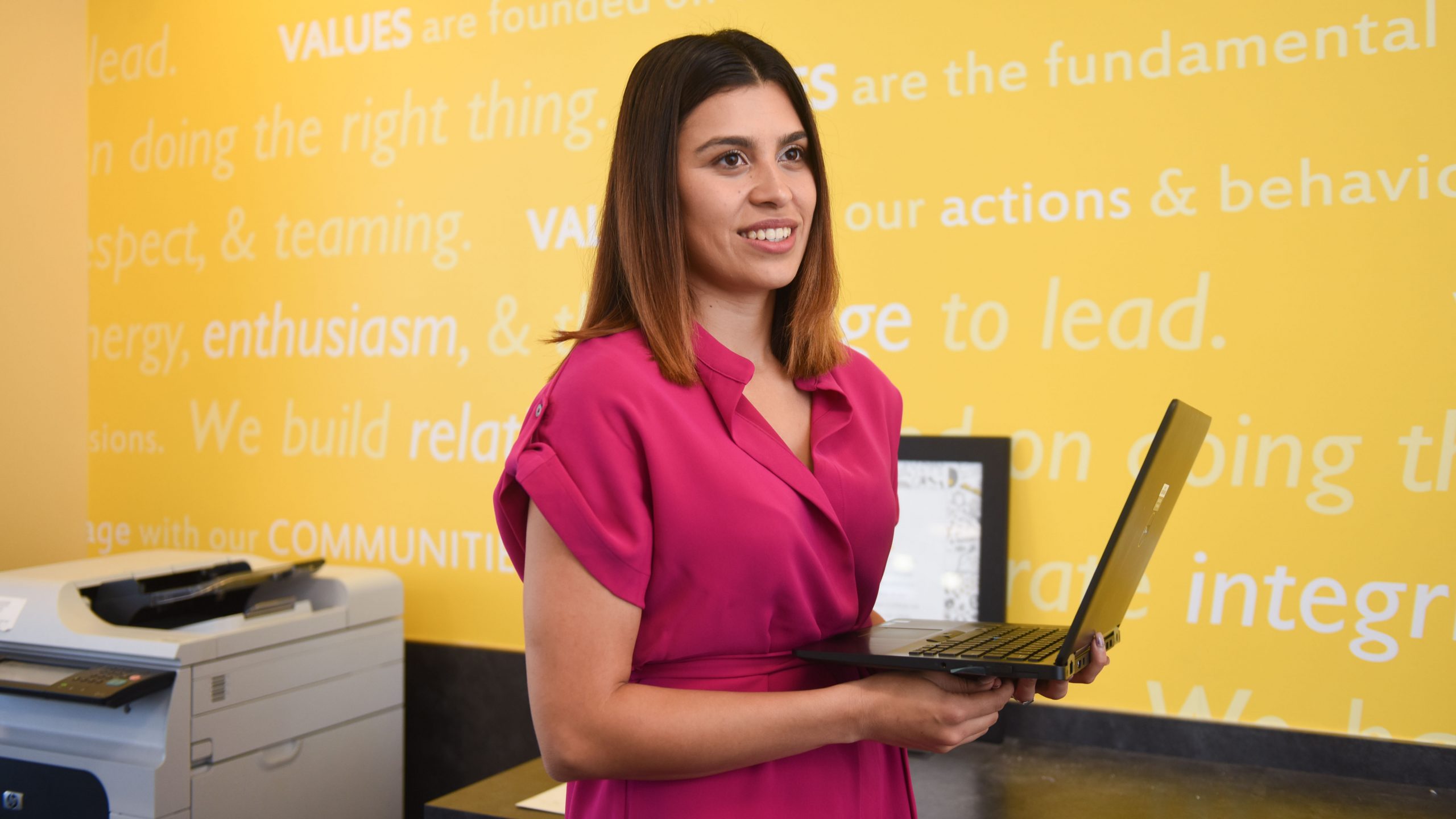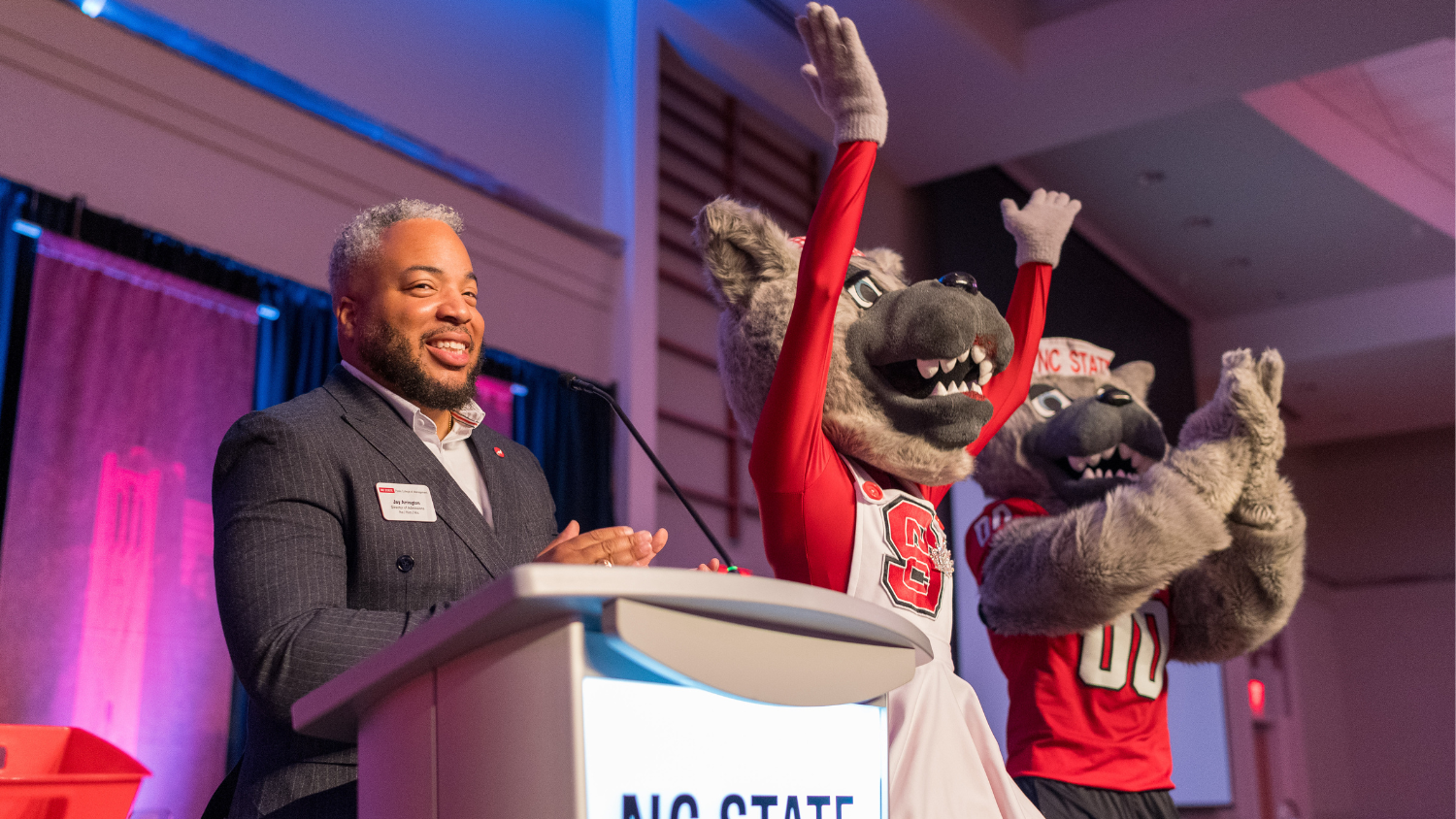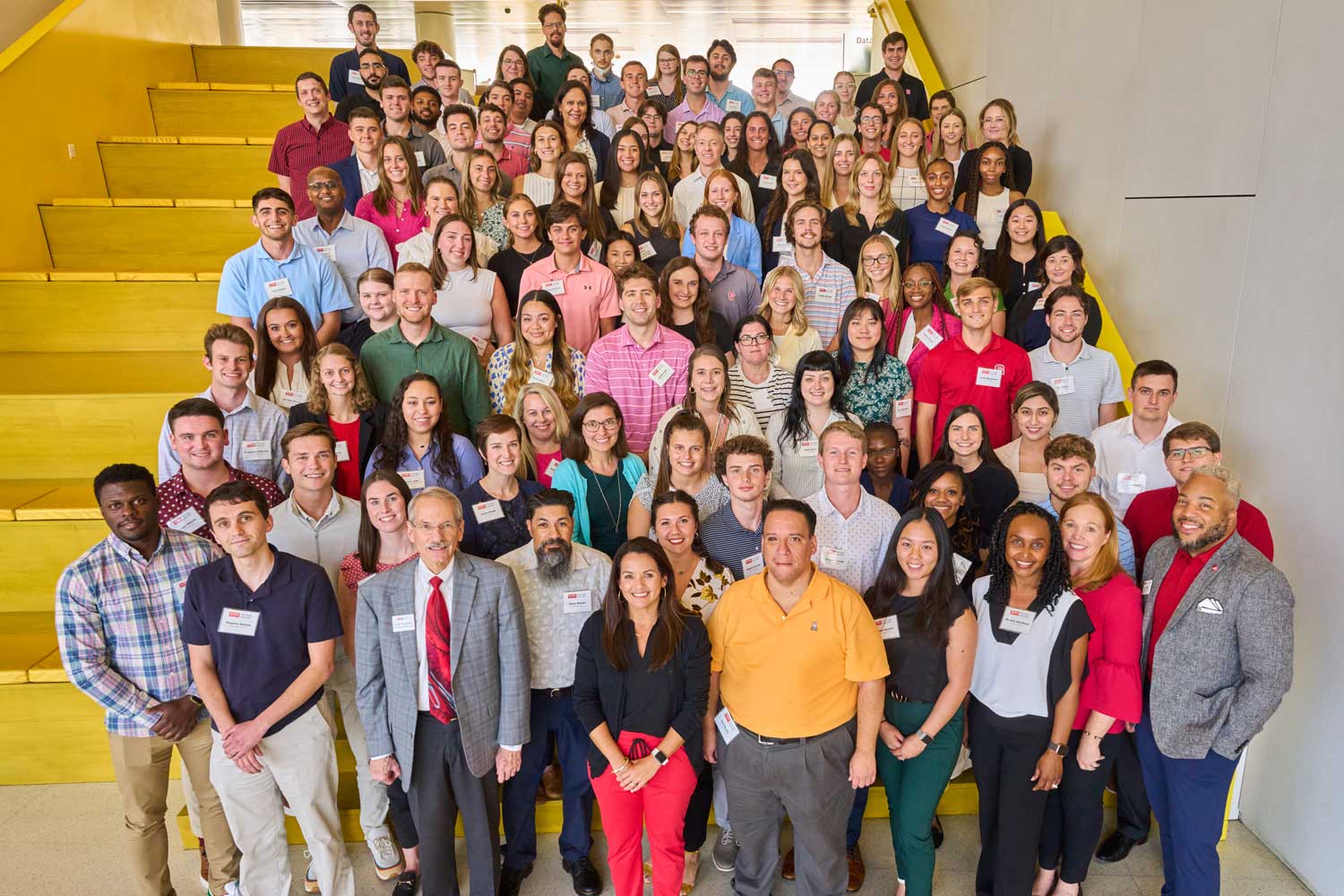Accounting Profession’s Commitment to Diversity Reflected in Scholarship Support for Jenkins MAC Students

As undergraduates at NC State, Jasmine Richardson (’17) and Cindy Cota (’17) learned that there were only a handful of African-American and Latina women like them in classes for their accounting major. But when the two applied to the Jenkins Master of Accounting (MAC) Program in the NC State Poole College of Management, each received a generous scholarship designated for academically talented students from historically underrepresented populations. Richardson was awarded a $10,000 grant provided by the Public Company Accounting Oversight Board (PCAOB), and Cota won a full-tuition scholarship offered by EY, one of the Big Four public accounting firms. The awards underscore the field’s commitment to increasing diversity among its ranks.

Richardson and Cota took different paths to the MAC program. Richardson, from eastern North Carolina, was drawn to numbers early on. As an NC State undergraduate student, she joined the very small chapter of the National Association of Black Accountants on campus and found support for her career choice. After her sophomore year, she was offered a summer internship at EY. Experiencing what an accountant would do day in and day out convinced her that the field was right for her.
The Big Four firms require that their accountants be licensed CPAs. In order to sit for the CPA exam, a candidate must have 150 credit hours from a university. Typically a bachelor’s degree is awarded after 120 credit hours. The MAC program would prepare her for success on the exam.
“The MAC classes are more relevant to my career than if I were to take random classes to get the extra hours,” Richardson said. “I chose NC State’s program because I already had a relationship with many of the professors from my undergraduate accounting courses. And I heard good things from people who had graduated from that program — they got their CPA license.”
Congress created the PCAOB scholarship as part of the Sarbanes-Oxley (SOX) Act in 2002. Penalties paid by companies violating SOX fund the grant, which is now in its sixth year. PCAOB sends one scholarship to each school it selects — 167 for the 2017-18 academic year, more than twice as many as last year — and each school chooses its recipient based on merit, underrepresented demographic status and demonstrated commitment to high ethical standards.
Richardson can use the PCOAB scholarship, which is split between fall and spring semesters, for tuition, fees or books.
“The scholarship takes one more thing off my plate,” Richardson said. “I can focus on academics, not the money aspect of going to school.”
The EY scholarship that Cota received covers 100 percent of her tuition for the entire yearlong MAC program, in exchange for a four-year commitment to work for the firm. As an undergraduate, Cota juggled two jobs to pay her expenses on her way to becoming the first in her family to graduate from college.
“I am very grateful for the EY scholarship, because now I can concentrate on the hours I have to commit to studying,” Cota said.
EY selects scholarship recipients from among the firm’s interns nationwide – and landing an EY internship is a competitive process by itself. Applicants must submit their transcripts, resume and an essay about how the scholarship would help them.
Poole College has received three PCAOB scholarships in the six years they’ve been awarded. Kathy Krawczyk, Dixon Hughes Professor and director of the Jenkins MAC Program, said the scholarships go beyond individual students and benefit the school as a whole. Not only do the awards enable the school’s scholarship funding to go further, but having students who receive these prestigious awards reflects well on the Jenkins MAC Program, too.
“We’ve been thrilled to get the PCAOB scholarship a few times and take advantage of this program,” Krawczyk said. “The EY scholarship is a new one. The fact that a student from NC State is involved in this provides a lot of outside exposure to our MAC program here.”
This story was written for the Jenkins MAC Program by writer Nancy E. Oates.
- Categories:


